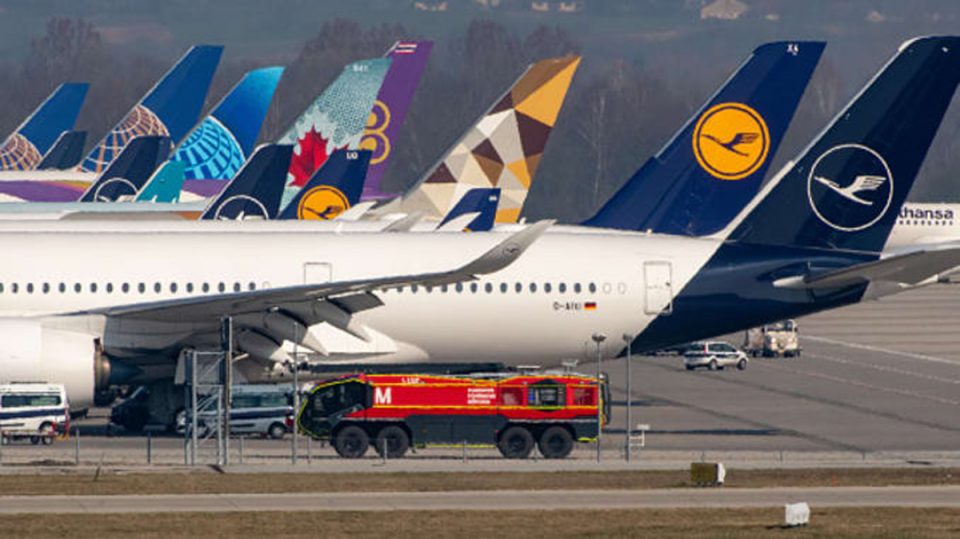Global outrage is on the rise over the failure of some countries, including Nigeria, to release funds accruing from ticket sales by foreign carriers operating into their domains. The trend is creating unease with disruptions in air connectivity and other dire consequences in the travel space.
Discontentment is on the rise in the global air travel sector as more countries violate international protocols with their continued withholding of funds belonging to airlines for ticket sales in their domains.
Many foreign carriers are unable to repatriate their revenue from ticket sales in Nigeria, Pakistan, Bangladesh, Lebanon, and Algeria, among others. The development has been described as unhealthy for business by the International Air Transport Association (IATA).
Experts have raised concern over foreign airlines’ inability to repatriate trapped funds in Nigeria, describing it as an infraction against international agreements and treaty obligations.
They said Nigeria becoming a destination for countries with the highest amount of foreign airlines’ trapped funds has dire implications.
The implications, according to them, include the designation of Nigeria as a high-risk country in doing businesses-related to aviation; the increase in insurance premium due to country risk and also the reluctance of lessors to lease aircraft to carriers or to do so at very high cost.
Experts believe Nigeria having the highest amount of the trapped airlines’ funds is not good for the country because of the perception of Nigeria in global aviation industry.
Last week, IATA said the trapped funds had reached $734,721,097 from $662 million in January, this year.
IATA said this in a letter addressed to the Minister of Aviation, Hadi Sirika, and signed by the Area Manager West and Central Africa, Dr Samson Fatokun.
Nigeria has remained the country with the highest amount of trapped airlines’ funds.
By last December, IATA published the list of countries with the highest trapped funds putting the figures for the countries as: Nigeria $551 million, Pakistan $225 million, Bangladesh: $208 million, Lebanon $144 million and Algeria $140 million.
IATA had warned that the amount of airline funds for repatriation being blocked by the governments had risen by more than 25 per cent to $394 million in the last six months, adding that total funds blocked then tallied at close to $2 billion.
But, Sirika said the government was making efforts to resolve the matter.
According to Sirika, the issue of the foreign carriers’ blocked funds resides with the Central Bank of Nigeria and not what the Ministry of Aviation could handle alone.
Worried over the development, one of the affected carriers, Emirates Airlines, cried out.
In a statement at the weekend, the carrier said despite its efforts to get the money repatriated to its home country, Nigeria continues to renege.
The statement said: “It has been five months since Emirates suspended operations to and from Nigeria, and during this time we have seen little progress in the clearing of our backlog of funds.
“As of today, Emirates still has a substantial balance of blocked funds that have yet to be repatriated, and the progressive clearing our backlog remains beset with constant delays. “Today, around 50 per cent of the amount approved for clearing within our backlog is still overdue for repatriation.
“We have made concerted efforts to enable a swift return to Nigeria. We had proposed a number of solutions and measures to recover our funds, and engaged in dialogue with government stakeholders and industry bodies. Regretfully and despite many media reports of public assurances made at the highest levels, solutions continue to be stalled.
“We acknowledge that the wider aviation industry and the local value chain it supports in Nigeria face a similar market reality. However, unless there is a committed strategy by the local authorities to deliver concrete action, air services for travellers, for businesses seeking global market opportunities and for investments – all supported through air transport and critical to Nigeria’s economic recovery will continue to dwindle.”
It added: “We remain committed to finding a mutual resolution with the Nigerian government and Central Bank to repatriate the rest of our blocked funds in a swift manner, and provide a roadmap that includes firm measures to prevent future repatriation accumulation challenges and delays. We call on them to work with us, hand in hand, to ensure Nigerian travellers and businesses have unfettered connectivity and access to our global network.”


previous post
next post


